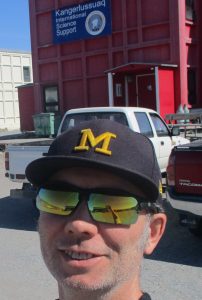I am an innovative research scientist, educator, and instructional coach with professional experience in machine learning and data analysis, computational modeling, remote field work, and secondary and university-level curriculum development. Equity and social justice are at the center of both my research and education efforts.
My climate research efforts have historically focused on polar regions. I have used remote sensing and in situ field observations to retrieve cloud occurrence and examine the surface energy budget in stable boundary layers. I have used advanced modeling and machine learning techniques to simulate the energy and isotopic content of the near-surface snow.
I am currently looking at the surface energy budget over polar snow. How can the surface energy budget help us refine our understanding of the stable water isotope signal in near-surface snow? What more do we need to know about snow to help us understand why the ‘dry zone’ in Greenland is melting during summers? As we work in areas like Greenland to address problems with global implications, how do we also ask and answer questions that are relevant to the local population?
From a ‘solutions’ point of view, I am interested in equitable, sustainable geoengineering interventions. How do we design and implement climate change interventions that include all stakeholders in the design, monitoring, and evaluation? How can we make sure all stakeholders have an authentic voice in the evaluation of success, especially in the context of externalities (intended and unintended)?
I have also spent over 10 years teaching high school in the Greater Seattle Area (University Prep, TEC High School, and Lakeside School). My education efforts have been focused developing an equitable teaching methodology in which students learn real-world skillz by solving real world problemz. This effort has many facets including (but not limited to): 1) a focus on educators collecting and learning from equity-relevant data in their classrooms, 2) curating data sets and collaborations that draw the outside world into the classroom, 3) putting students at the center of the problem-solving, learning, and celebrations.
Publications
For a complete publication list, see Michael Town on Google Scholar.

